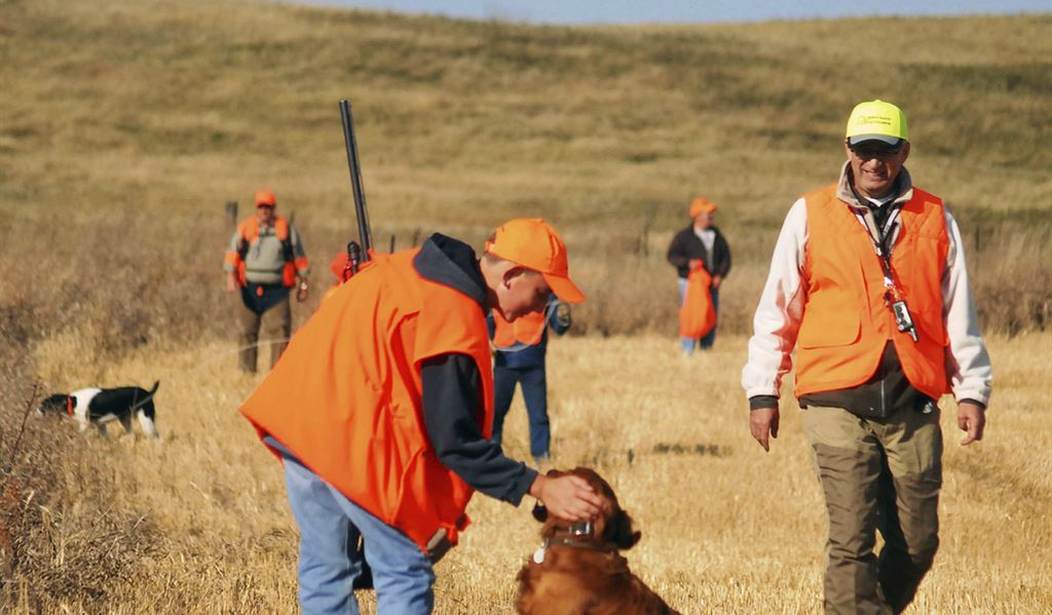To get a glimpse into the future of conservation legislation, look no further than Washington State.
A battle is playing out there over the future of wildlife conservation and management decisions involving anglers and hunters–sportsmen and women who are the biggest funders of conservation in the United States. In recent years, the game department - made up of an anti-conservationist majority-has been hijacked and voted to eliminate its spring black bear season.
One group, Washington Wildlife First, is leading the charge to divorce sportsmen and women from conservation in the Evergreen State. Its aim is to “elevate conservation over consumption” and to “ transform the state’s management of fish and wildlife to a model that values science, respects nature, and prioritizes the protection and preservation of wildlife and wild fish on behalf of all Washingtonians.”
Recommended
WWF also accuses the game department, the Washington Department of Fish and Wildlife, of losing sight of its missing and being an “agency focused on killing fish and wildlife, not preserving them.” Their stated mission gets more outrageous when you see them accuse WDFW of being “anti-science” and promoting “unethical hunting” despite big game hunting or hound hunting being ethical and permitted under the North American Model of Wildlife Conservation. This, mind you, is a group that opposes all forms of hunting–so they lack credibility to deem what is and isn’t ethical hunting.
Should their efforts succeed, these preservationists are fine with Washington State forgoing $22,615,536 generated by hunters and over $8.911 million generated by anglers, respectively. These monies support habitat restoration, wildlife conservation, hunters education, and public target shooting ranges. Unsurprisingly, these chaos agents would imperil biodiversity in order to remove true conservationists from the landscape.
WWF’s dangerous agenda is being challenged, however, in the form of Senate Joint Resolution 8208. Conservationists in the state legislature have proposed a resolution to establish a constitutional right to hunt and fish there to stop these egregious attacks from occurring. Pending no changes, the Senate Committee on Agriculture, Water, Natural Resources & Parks is expected to hear the bill later this afternoon.
The bill’s text reads, “From the time humans first occupied this land, hunting, fishing, and foraging have been a necessity and a cultural right. The rights to forage, hunt, fish, and trap, including the use of traditional methods, are a valued part of the heritage of the state of Washington and shall forever be preserved for the people and managed through the laws, rules, and proclamations that preserve the future of hunting, fishing, and trapping. All the people of this state shall have an inalienable right to forage, hunt, fish, trap, and harvest wildlife and fish, subject only to reasonable regulation as prescribed by the Washington state legislature and executive branch. Traditional methods, practices, and procedures of harvest are the preferred means of managing game and fish. Nothing in this section may be construed to modify any provision of common law or statutes relating to trespass, eminent domain, or any other property rights, nor does this section supersede, limit, interpret, or infringe upon any established tribal treaty rights.”
As I recently noted here at Townhall.com, enshrining right to hunt and fish amendments into a state constitution are bipartisan and necessary to stave off these kinds of attacks:
Right to hunt and fish amendments are considered a “sportsperson's bill of rights” enshrined into state constitutions. The bipartisan Congressional Sportsmen Foundation says these measures “guarantee their citizens a right to hunt, fish, and harvest wildlife and to continue a consumptive, yet responsible, use of natural resources.”
What’s the state of right to hunt and fish amendments in America today? 23 other states currently boast amendments to their respective constitutions enshrining the right to hunt and fish.
Florida voters are expected to support one on November 5th, 2024, after a resolution near-unanimously cleared the legislature in Tallahassee last year. A bill is currently moving its way through the Ohio legislature. Red states like West Virginia, Iowa, South Dakota, and Missouri, however, have yet to adopt these measures.
If such an effort succeeds in Washington State–although it’s a longshot due to the legislature’s very blue tilt–these aforementioned states might act.
Hunting and fishing undoubtedly fund the bulk of conservation funding in this country–even those from Washington State. Nationally, $27 billion in conservation funding has been dispersed to all 50 states through the U.S. Fish and Wildlife Service’s Wildlife and Sport Fish Restoration Program (Pittman-Robertson Dingell-Johnson/Wallop-Breaux) since 1937.
Preservationists conveniently gloss over the $16 billion– $25 billion adjusted for inflation– generated by excise taxes collected on firearms and ammunition purchases under the Pittman-Robertson Act.
If sanity prevails in Washington State, states like Colorado will be put on notice next.

























